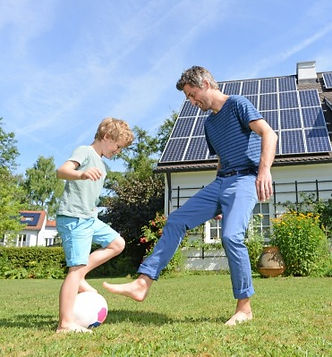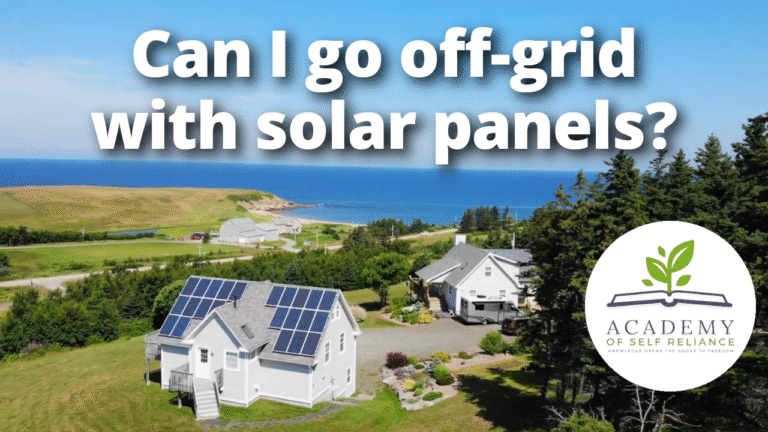Off-Grid Living 101: Understanding the Benefits, Challenges, and Realities of Living Self-sufficient
Takeaways
- Off-grid living is living independently from the traditional power grid and often from other public utilities.
- It requires generating one’s own power through alternative energy sources, such as solar or wind power, and relying on well and/or rainwater catchment for water.
- It promotes self-sufficiency and sustainability, and involves working together to maintain alternative energy systems, tending to a garden for food, and helping neighbors.
- Living off-grid may have some challenges, but many find that the benefits outweigh the drawbacks.
- The popularity of off-grid living has been increasing in America and the laws and regulations can vary by state.
Introduction
Off-grid living is becoming an increasingly popular lifestyle choice for those looking to live a self-sufficient and sustainable lifestyle. But what exactly does it mean to live off the grid? In this blog post, we’ll explore the definition of off-grid living, the technical aspects, lifestyle, and the current situation of off-grid living in America.
Definition of off-grid living

To begin, let’s define off-grid living. Simply put, living off the grid means living independently from the traditional power grid and often from other public utilities. This means generating one’s own power through alternative energy sources, such as solar or wind power, and often relying on a well or rainwater catchment for water. It also means being self-sufficient in terms of food production and waste management.
Technical Aspects of off-grid living
One of the key features of off-grid living is the use of alternative energy sources. Solar power is a popular choice for off-grid living as it is relatively easy to install and maintain. Wind power, hydroelectric power, and geothermal energy are also used in off-grid living, but they may be more difficult to set up and require more maintenance.
Additionally, off-grid living requires battery storage and other equipment to manage and store energy.
Measuring energy consumption is also an important aspect of off-grid living. Having a clear understanding of how much energy is needed and how much is being generated can help off-grid dwellers make informed decisions about their energy use.
Off-grid living does have its challenges and limitations, such as the initial cost of setting up an off-grid system, as well as the maintenance and upkeep of the equipment. However, many off-grid dwellers find that the benefits of self-sufficiency and sustainability outweigh the challenges.
Lifestyle and daily life of off-grid living

When it comes to lifestyle, off-grid living promotes self-sufficiency and sustainability. A typical day in an off-grid community may involve working together to maintain alternative energy systems, tending to a garden for food, and helping out an off-grid neighbor with a challenge they have. While this lifestyle may seem isolating to some, many off-grid dwellers find that the sense of community and shared responsibility is stronger than in traditional living situations.
Off-grid living also has an impact on health and the environment. Access to fresh, unprocessed foods and a lack of exposure to pollutants often leads to improved health for off-grid dwellers. And, by living off the grid, individuals reduce their carbon footprint and decrease their reliance on fossil fuels.
Off-grid living in America
In America, off-grid living has been growing in popularity in recent years. Government regulations and laws related to off-grid living vary by state, and it is important for those considering off-grid living to familiarize themselves with the regulations in their area. Rural areas tend to be more accommodating for off-grid living than urban areas due to the availability of land and resources. However, with the increasing popularity and advancements in technology, off-grid living is becoming more feasible in urban areas as well.
Conclusion
To conclude, off-grid living is a lifestyle that is gaining popularity due to the many benefits it offers. It is an environmentally friendly and sustainable way of living that promotes self-sufficiency and a strong sense of community. If you’re interested in learning more about off-grid living, we encourage you to explore our website, read books, and watch documentaries on the subject. You may also want to look into visiting an off-grid community to experience the lifestyle first-hand.



